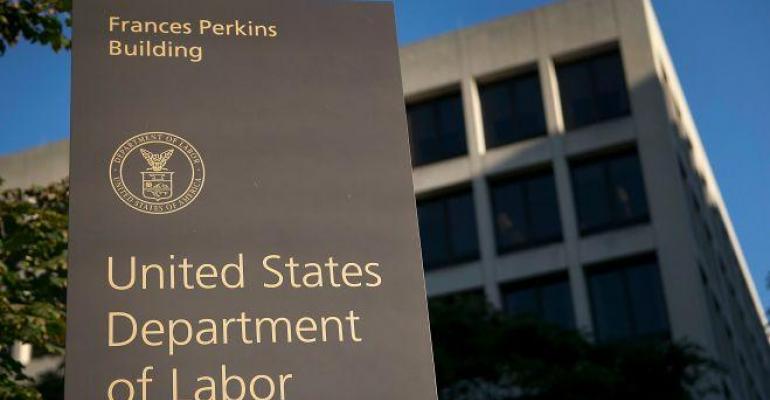The Financial Planning Association is supportive of the Department of Labor’s fiduciary proposal, but the organization said Tuesday that doesn’t mean it thinks the rules is perfect.
In terms of areas of clarification, 2015 FA Chair Janet Stanzak said the FPA is looking to discover what level of educational information an advisor can give to a client before crossing the line into fiduciary responsibility.
“Offering a potential client just purely generic information may not give them enough information to make a determination before signing a contract,” she said.
Stanzak also called the current reporting obligations and disclosure requirements within the proposal—which is aimed at brokers working with clients' retirement accounts—“too onerous and costly” and said the FPA plans, in conjunction with the Financial Planning Coalition, to suggest ways to reduce the requirements without compromising the disclosures that are needed.
The current rule proposal needs to “streamline reporting, recordkeeping and disclosure requirements in a way so that the consumer has the right information and, at the same time, the advisor and their firm is not overly burdened,” said Karen Nystrom, FPA’s director of advocacy.
Additionally, the FPA believes the proposed eight month timeframe for the rule’s implementation is “too short” and doesn’t give advisors and their firms enough time to comply with the rule as proposed.
“What we’ve heard over and over from our members and other practitioners is not workable for that feature [of the proposal],” Stanzack said. Instead, the FPA will propose that the Labor Department roll out an implementation date for key portions of the proposal, with an enforcement date some time after that. “We want to make sure while this rule is protecting consumers, it’s also workable for our advisors.”
The FPA’s comments come as two-thirds of financial advisors recently surveyed by the National Association of Insurance and Financial Advisors said they expected to lose clients because of the Labor Department’s rule.
NAIFA said advisors feared clients would be intimidated by or unwilling to sign the “best interest standard” contracts required under the proposal and the data retention and disclosure requirements were burdensome, especially in regards to clients with smaller accounts.
Instead of a five-part test to determine if an advisor is acting as a fiduciary, the DOL’s re-proposed fiduciary rule includes a "best interest contract exemption” that would require advisors and firms who want to receive certain types of compensation to "formally commit" to clients they will put their best interests first, according to Labor Secretary Thomas Perez.
About 61 percent of advisors surveyed by NAIFA said the contract requirement was likely to harm their relationships with existing clients, while only 4 percent thought the contracts would improve relations.
Over 1,000 advisors participated in the survey, which was released Tuesday. About 58 percent of the respondents identified as a registered representative of a broker-dealer, about 3 percent were RIAs and about 22 percent were dually-registered.
The Coalition plans to file its comment letter on the DOL's fiduciary proposal on July 21. In the meantime, the FPA is hosting its annual advocacy day in Washington, D.C., on Tuesday and Wednesday, where the organization plans to meet with both the White House and DOL staff members. About 65 advisors from across the country are expected to participate.





